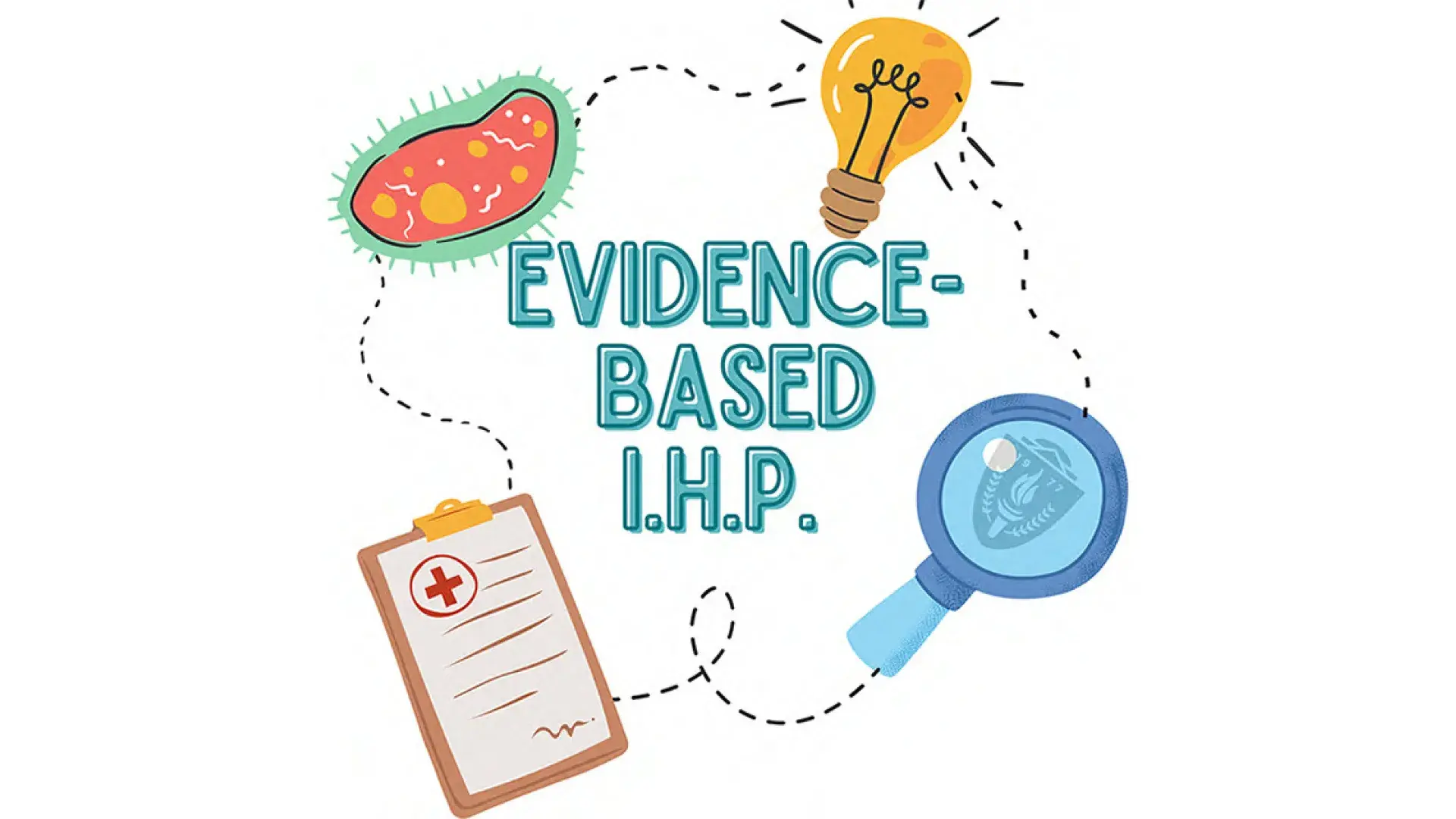
Student research experiences and how they connect to clinical practice is the focus of a new podcast launched by the MGH Institute’s library.
“Evidence-Based IHP” is co-hosted by creator Amanda Tarbet, assistant director of library services at the IHP’s Janis P. Bellack Library, and Rachel Norton, a second-year CSD student who works on research in the Institute’s Brain, Education, and Mind (BEAM) Lab.
The podcast, which is executive produced by Selena Craig, assistant director of digital branding in the Office of Strategic Communications, has dropped three episodes to date. Its focus is to make research more accessible and provide details beyond the pages of final published findings in a research journal.
“Students engaged in research are more willing to think critically about things like clinical practice when they’ve had the experience of investigating a hypothesis,” said Tarbet, who assists students in preparing their research efforts, in the inaugural episode. “It builds self-confidence, professional values, and curiosity. It can be a transformative experience.”
Each episode features student researchers who tell their origin stories and the decisions that went into completing their research project. Topics have included research by physical therapy students on how educators can better support culturally and diverse linguistic learners in graduate school and findings from a genetic counseling student who collaborated with her team at the Massachusetts General Hospital Turner Syndrome Clinic to help genetic counselors personalize care for women with 45,X/46,XX mosaicism.
Future topics will include an MSN student’s project to increase awareness amongst neonatal care teams about new pediatric peanut allergy guidelines and an OTD student’s research on the experience of occupational therapy practitioners with telepractice early in the COVID-19 pandemic.
“I really wanted something positive to come out of the chaos and the tragedy of the past year,” Tarbet explained. “I hope that when people listen to the interviews this season, they feel hopeful about the future because they will get to know the incredible people who are the future of health care.”
Many of the episodes include bonus nuggets of actionable information, such as how to support Black women in STEM, and to utilize the Bellack Library to help research and site materials published by Black women.
Tarbet said the podcast also will highlight the interprofessional practice focus that runs through all the IHP’s academic programs. Research builds upon this idea allowing individuals to expand their personal knowledge base and interpret studies in fields other than their own. As Tarbet noted, “Even if we interview a genetic counseling student, we hope that a physician assistant studies student will hear something that they think is good advice for them or will make them curious or will be valuable to them as well.”
Norton, who became interested in research while studying underserved populations in her undergraduate program, noted she expects larger societal issues to be discussed in upcoming episodes.
“Ultimately, it’s a great tool for advocacy and social justice and disseminating really important information,” Norton added in the introductory episode. “But it needs to be more accessible. So, one of the goals is to show what amazing projects are happening here and hopefully encourage students to get involved or address a problem of their own.”
